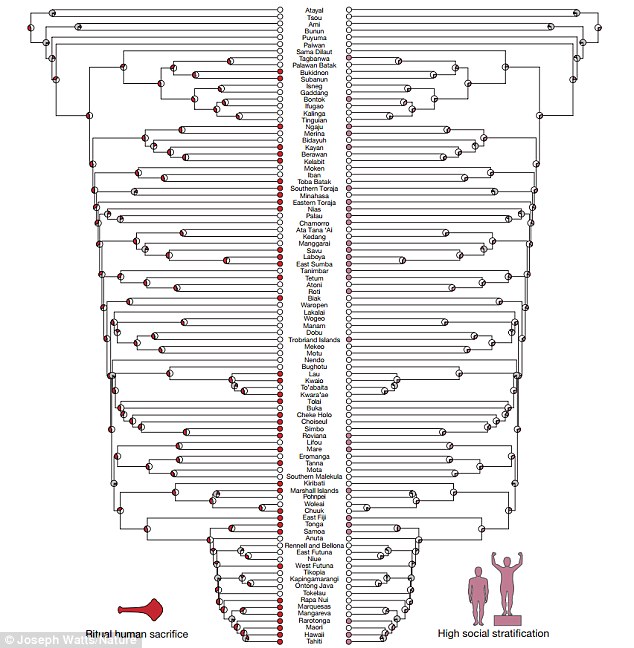
Human sacrifice may seem brutal and bloody by modern social standards, but it was a common in ancient societies.
Now, researchers believe the ritualised killing of individuals to placate a god played a role in building and sustaining stable communities with social hierarchies.
In particular, a study of 93 cultures across Asia, Oceana and Africa, has found the practices helped establish authority and set up class-based systems.
Human sacrifice was once widespread throughout these Austronesian cultures, which used it as the ultimate punishment, for funerals and to consecrate new boats.
Sacrificial victims were typically of low social status, such as slaves, while instigators were of high social status, such as priests and chiefs, installing a sense of fear in the lower classes.
Since the European colonisation of Central America 500 years ago – when Conquistadors were horrified by the Aztecs’ sacrificial practices – experts have claimed ritualised killings were a form of social catharsis.
They described them as a justification for political conflicts and even a source of protein when combined with cannibalism.
Researchers from the universities of Wellington and Auckland, the Max Plank Institute for the Science of Human History in Germany, the Australian National University and the Allan Wilson Centre for Molecular Ecology and Evolution in New Zealand set out to test the assumption they sanctified authority.
Joseph Watts, lead author of the study, published in Nature, studied the evolutionary family trees of 93 traditional Austronesian societies.
